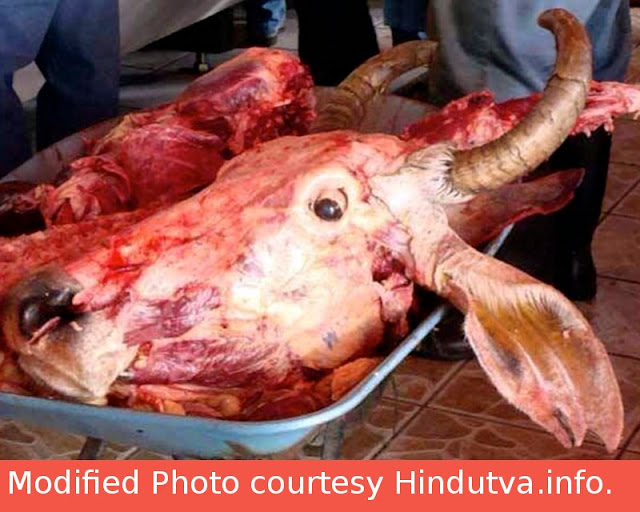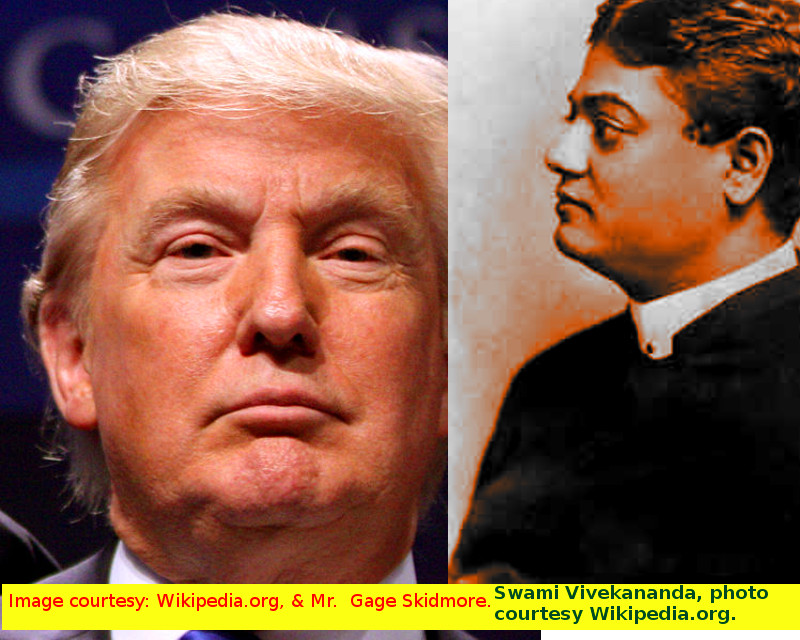#160, YOU MUST PERSUADE HARRIET TO GIVE ME A FEW DOLLARS EVERY MONTH
Swami Vivekananda wrote to Ms. Mary Hale, from Los Angeles, on June 17, 1900.
BLOGGER'S VIEWs
In one letter his demand for money appears jocular, but it is real. His earlier letter to Ms. Mary Hale Sept. 1899 from Ridgely Manor has one such appeal:
Here Harriet is Harriet Hale. She married Mr. Woolley. It appears that Vivekananda facilitated the marriage of Harriet to Mr. Woolley. One gets an impression that he wants a donation, as a token of happiness. This can be seen from his letter dated 16th March 1899 from Belur Math to Ms. Mary Hale.
BLOGGER'S VIEW
It is an Indian custom for mendicants and monks approaching well-to-do persons and rulers for maintenance grants. Even monasteries and sages did it. Vivekananda is not an exception. Bhartruhari's view of a mendicant was totally different. A mendicant does not need money at all. He needs a few morsels of food and nothing else. Even if his clothes are tattered, he does not mind. According to Bhartruhari, a monk cannot think of the next day. In fact a mendicant cannot stand at the doorsteps of a house for more than a few moments. This type of living by alms (madhukaram) Vivekananda prescribes for his brother-disciples and disciples. Though Vivekananda reminisces of the living-by-alms days and going back to the good old days, he never does it. Not enough evidence is available that he lived by alms. Even his stay at the Asram of Pavahari Baba was quite comfortable and there was no need to beg, though he called it living by alms.
In his early years (1890-1893) Vivekananda approached native rulers like the Raja of Khetri, Ruler of Mysore, Divan of Junagadh, Raja of Ramnadu, et al and other wealthy persons, but the response it appears was not encouraging. This was probably because Vivekananda did not belong to Priest caste. In strict sense, monks cannot have a caste and their caste before renunciation was irrelevant. But the native rulers are guided by Priest Caste advisers and it is unnatural for them to recommend patronising of a non-Priest caste monk. Vivekananda himself instead of claiming that he was casteless, presented himself to be a Kshatria (warrior caste) (apparently to be on par with the native rulers). Disappointed with the native rulers and rich persons, Vivekananda seems to have chosen the Yankee land.
The same Raja of Ramnad presented a huge sold gold casket to Vivekananda after he returned triumphantly from US (first visit) and drew his carriage of horses. This may be due to: Native rulers have dreams of reviving past Hindu glory and Vivekananda aroused hopes of such revival not only at Indian level but at global level. Strangely, the five monasteries of Advaita philosophy (Badri, Dwaraka, Puri, Sringery and Kanchi) were silent about Vivekananda's adventures, escapades and accomplishments. Either they were not aware or they were uninterested, immersed as they were in their own isolated worlds of courtiers and false prestige. The five heads of the monasteries took pride in calling themselves as Jagadgurus (Preceptors of the World) although they never taught beyond a few hundred kms. from their headquarters.
The few dollars per month request: Vivekananda is trying to mobilise funds for his personal purpose.
"...Well, now about me. You must persuade Harriet to give me a few dollars every month, and I will have some other friends do the same. If I succeed, I fly off to India. I am dead tired of the platform work for a living. It does not please me any more. ..."
BLOGGER'S VIEWs
In one letter his demand for money appears jocular, but it is real. His earlier letter to Ms. Mary Hale Sept. 1899 from Ridgely Manor has one such appeal:
"... Harriet Woolley has been uniformly silent. Never mind, I will bide my time, and as soon as Mr. Woolley becomes a millionaire, demand my money ..."
Here Harriet is Harriet Hale. She married Mr. Woolley. It appears that Vivekananda facilitated the marriage of Harriet to Mr. Woolley. One gets an impression that he wants a donation, as a token of happiness. This can be seen from his letter dated 16th March 1899 from Belur Math to Ms. Mary Hale.
But "Willy" or no "Willy", I must have my money, don't forget. Harriet is discreetly silent since she got her boy; but where is my money, please? Remind her and her husband of it. If she is Woolley, I am greasy Bengali, as the English call us here — Lord, where is my money?
I have got a monastery on the Ganga now, after all, thanks to American and English friends. Tell Mother to look sharp. I am going to deluge your Yankee land with idolatrous missionaries.
Tell Mr. Woolley he got the sister but has not paid the brother yet. Moreover, it was the fat black queerly dressed apparition smoking in the parlour that frightened many a temptation away, and that was one of the causes which secured Harriet to Mr. Woolley; therefore, I want to be paid for my great share in the work etc., etc. Plead strong, will you?
BLOGGER'S VIEW
It is an Indian custom for mendicants and monks approaching well-to-do persons and rulers for maintenance grants. Even monasteries and sages did it. Vivekananda is not an exception. Bhartruhari's view of a mendicant was totally different. A mendicant does not need money at all. He needs a few morsels of food and nothing else. Even if his clothes are tattered, he does not mind. According to Bhartruhari, a monk cannot think of the next day. In fact a mendicant cannot stand at the doorsteps of a house for more than a few moments. This type of living by alms (madhukaram) Vivekananda prescribes for his brother-disciples and disciples. Though Vivekananda reminisces of the living-by-alms days and going back to the good old days, he never does it. Not enough evidence is available that he lived by alms. Even his stay at the Asram of Pavahari Baba was quite comfortable and there was no need to beg, though he called it living by alms.
In his early years (1890-1893) Vivekananda approached native rulers like the Raja of Khetri, Ruler of Mysore, Divan of Junagadh, Raja of Ramnadu, et al and other wealthy persons, but the response it appears was not encouraging. This was probably because Vivekananda did not belong to Priest caste. In strict sense, monks cannot have a caste and their caste before renunciation was irrelevant. But the native rulers are guided by Priest Caste advisers and it is unnatural for them to recommend patronising of a non-Priest caste monk. Vivekananda himself instead of claiming that he was casteless, presented himself to be a Kshatria (warrior caste) (apparently to be on par with the native rulers). Disappointed with the native rulers and rich persons, Vivekananda seems to have chosen the Yankee land.
The same Raja of Ramnad presented a huge sold gold casket to Vivekananda after he returned triumphantly from US (first visit) and drew his carriage of horses. This may be due to: Native rulers have dreams of reviving past Hindu glory and Vivekananda aroused hopes of such revival not only at Indian level but at global level. Strangely, the five monasteries of Advaita philosophy (Badri, Dwaraka, Puri, Sringery and Kanchi) were silent about Vivekananda's adventures, escapades and accomplishments. Either they were not aware or they were uninterested, immersed as they were in their own isolated worlds of courtiers and false prestige. The five heads of the monasteries took pride in calling themselves as Jagadgurus (Preceptors of the World) although they never taught beyond a few hundred kms. from their headquarters.
The few dollars per month request: Vivekananda is trying to mobilise funds for his personal purpose.



Comments